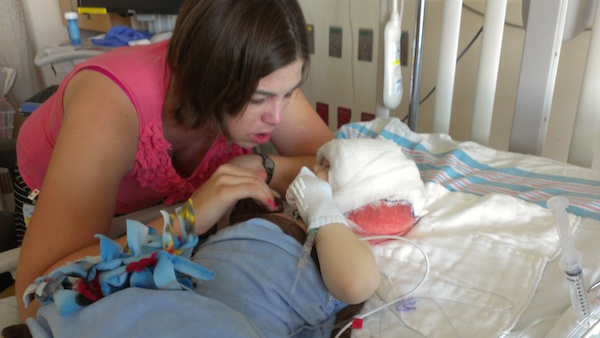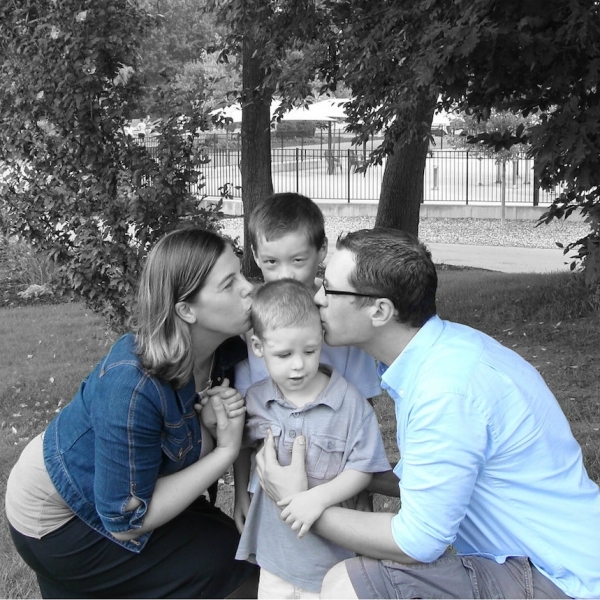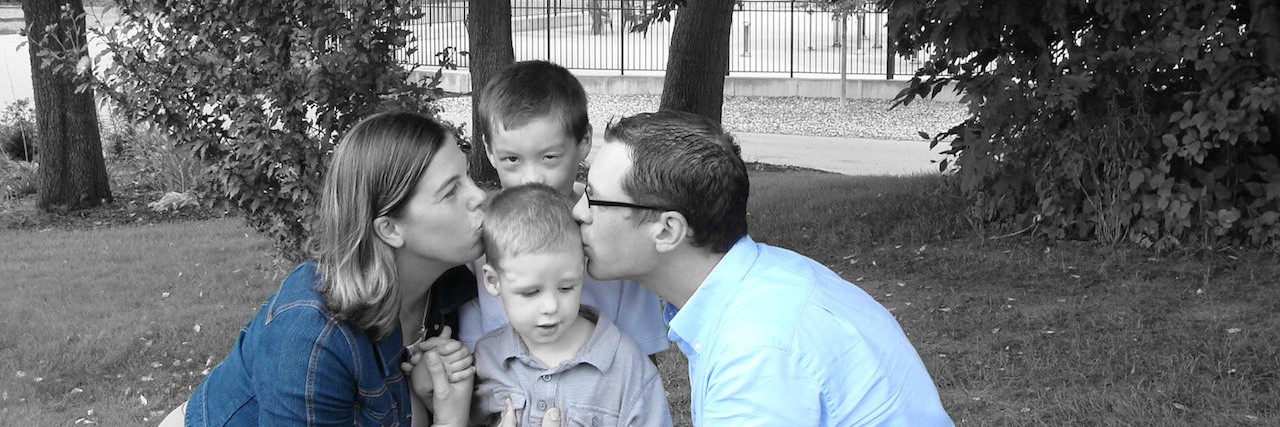I used to think I knew what being brave was. I even used to naively and arrogantly think I was already brave. To me, bravery was all about grit and determination, taking on a challenge yourself without a safety net. It was about charging full steam ahead into the abyss of the great unknown with a ferocity nobody could deny. It was about pushing that fear down deeper, swallowing it whole and throwing another helping onto your plate unflinchingly. But that was before.
Be brave. Be brave. Be brave. I whispered it to myself as I quickly walked down the long white hallway. Be brave. Be brave. Be brave. I swallowed hard, stuffing the rising fear and hysteria down further. The nurse stopped at a door and motioned to my husband and me that this was the one. I took a deep breath and swung the door open and felt all my notions of bravery on the verge of being thrown up. There lay my 1-year-old son Emmett. He had been in surgery for seven hours and 26 minutes having his entire skull broken apart, removed and reassembled correctly in order to give his brain enough room to grow. There were wires, tubes and lines everywhere. His entire head was wrapped in a massive amount of white gauze but nothing could hide the deep red blood soaking through the back of it. His broken skull. Bleeding through everything, staining the sterile white pillowcase. I stood over his bedside and wept into his chest. My sweet, fragile, helpless little baby boy all torn apart in the middle of the ICU. I stood still. Time itself stood still.

To watch your child suffer so greatly, it does things to you. That was only the beginning and the very first surgery. There would be more. There would be hours upon hours spent watching my child suffer. There would be seizures, tests, scans, hospitalizations, ambulance rides, additional surgeries, medications,and therapies. Round and round we would go on this out of control ride we so desperately wanted off of.
And all along, I knew. I wasn’t brave no matter what people thought. I was still scared. I was just pretending. My first true admission of defeat set everything in motion. I had insomnia. I was having panic attacks. I was losing myself. I was falling apart so noticeably, I couldn’t ignore it any longer, so I went to see a therapist. Here I was this wild eyed woman with unbrushed hair, deep, dark circles under her eyes, nervously bouncing my leg up and down with tears streaming down my face and he called me brave. The therapist told me he could see how hard it was for me to ask for help and admit defeat. He thought I was brave. Me. Brave. The woman on the floor next to her son’s crib each night, not sleeping. The woman who throws vases, pictures, remotes and keys at the walls and breaks them in fits of sheer desperation and anger at these circumstances I can’t change. The woman who left her phone in the fridge, threw the clean clothes in the trash can and can’t remember what month it is no matter how many times someone tells me. He thought I was brave because I told the truth and because I asked for help. I pondered it for weeks. That sure wasn’t what I had thought bravery was. This was the opposite, I felt weak and like a failure for needing to be in this office in the first place. But he was a licensed professional, who was I to disagree?
Slowly, with the therapist’s encouragements, I began to take the walls down. To tell the truth more and more often, even when it was scary and unflattering. Even when I was worried people would judge me or laugh at me. And something amazing happened. The more I told the truth, the braver I began to feel. I was facing a completely different kind of fear head on and I felt stronger for it.
I still can’t say for sure if I’m actually brave. Sometimes, I’m so sure of my place in this life and sometimes I’m just that desperate, scared woman all over again. I suppose there is bravery in that admission. To truly be brave, first I had to admit how truly scared I was.

The Mighty is asking the following: Tell us about the first time you reached out to someone about your mental illness. Whether it was a friend or a professional, we want to hear about why you opened up, how it went, and why you’re glad (or maybe not glad) you did it. Check out our Submit a Story page for more about our submission guidelines.

